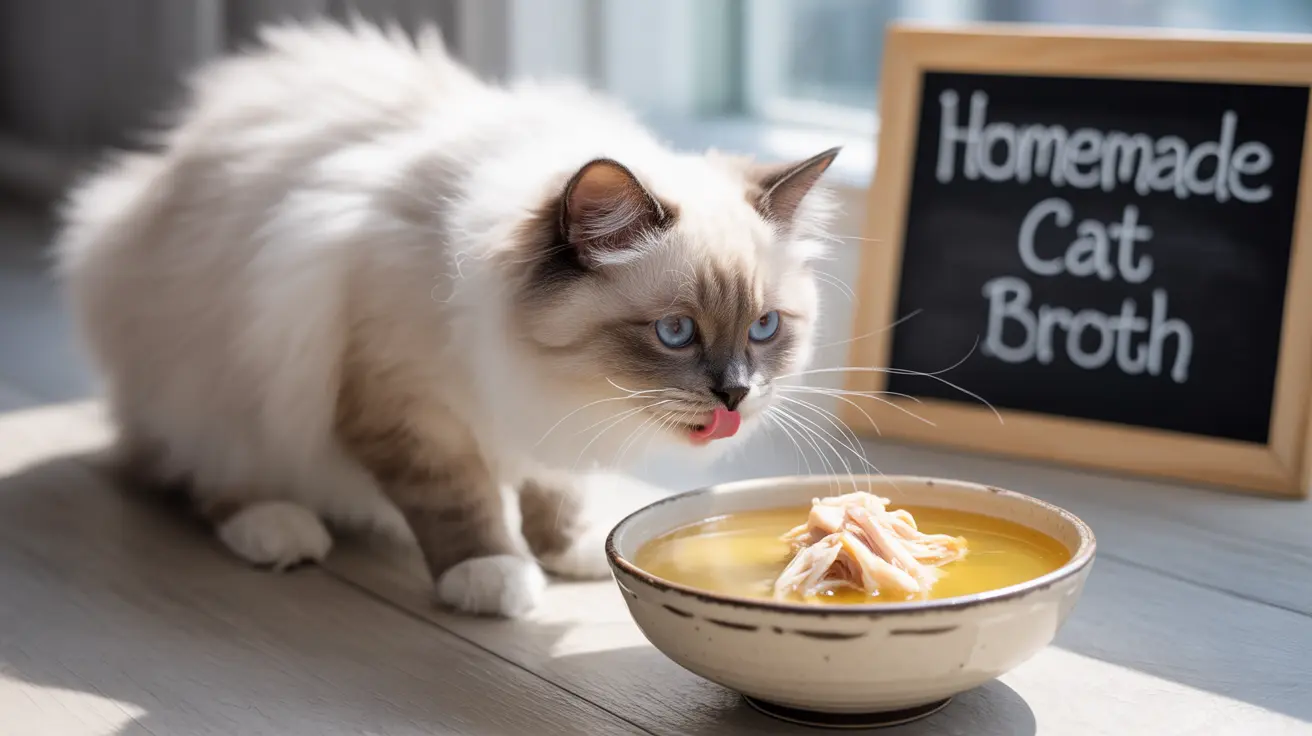As pet owners increasingly share their meals with their furry friends, you might wonder: can cats eat soup? While the idea of giving your cat a warm, comforting bowl of soup might seem appealing, it's crucial to understand that most human soups can be dangerous for felines. This comprehensive guide will explore what soups are safe for cats, which ones to avoid, and how to prepare cat-friendly alternatives.
Understanding Why Most Human Soups Are Dangerous for Cats
The majority of soups made for human consumption contain ingredients that can be harmful or even toxic to cats. Common soup ingredients like onions, garlic, and high sodium levels can cause serious health issues in felines. Even small amounts of these ingredients can lead to adverse reactions.
Key Dangerous Ingredients in Human Soups
Most commercial and homemade soups contain several problematic ingredients for cats:
- High sodium content that can lead to salt poisoning
- Onions and garlic (toxic to cats in any form)
- Dairy products that most cats can't digest
- Preservatives and artificial additives
- Starchy vegetables that cats struggle to process
Safe Soup Options for Cats
While most human soups are off-limits, there are several safe alternatives for cats:
Homemade Cat-Safe Broth
The safest option is making your own cat-friendly broth:
- Use plain, unseasoned chicken or turkey
- Simmer in pure water without salt
- Remove all bones and fat
- Strain and cool before serving
- Store properly in refrigerator or freeze in portions
Commercial Cat Broths
Several pet food manufacturers now produce specially formulated cat broths that:
- Contain appropriate nutrition levels
- Are free from harmful ingredients
- Include added vitamins and minerals
- Come in convenient serving sizes
Benefits of Safe Soups for Cats
When prepared properly, cat-safe soups can offer several benefits:
- Increased hydration
- Enhanced appetite stimulation
- Additional nutrients when made with quality ingredients
- Helpful for administering medications
- Beneficial for elderly cats or those with dental issues
How to Safely Introduce Soup to Your Cat's Diet
When adding soup to your cat's diet, follow these guidelines:
- Start with small amounts
- Monitor for any adverse reactions
- Use only as an occasional treat
- Maintain proper portion control
- Never replace regular meals with soup
Frequently Asked Questions
Can cats safely drink soup or broth, and what types are best for them?
Cats can safely consume specifically prepared broths made without seasonings, salt, or harmful ingredients. The best options are homemade chicken or turkey broth made with pure water, or commercial broths specifically formulated for cats.
Why are common soup ingredients like onions and garlic toxic to cats?
Onions and garlic contain compounds that can damage cats' red blood cells, potentially leading to anemia. Even small amounts can be harmful, and the effects can be cumulative over time.
How can I make homemade soup or broth that is safe and healthy for my cat?
To make safe cat broth, simmer plain chicken or turkey in water without any seasonings, strain thoroughly, remove all bones and fat, and let cool before serving. Never add salt, onions, garlic, or other seasonings.
What symptoms should I watch for if my cat accidentally eats human soup?
Watch for vomiting, diarrhea, lethargy, unusual behavior, difficulty breathing, or pale gums. If you notice any of these symptoms after your cat consumes human soup, contact your veterinarian immediately.
Are commercial cat soups or broths a good alternative to homemade versions?
Yes, commercial cat broths can be a safe alternative to homemade versions, as they're specifically formulated for feline consumption. Always choose products from reputable pet food manufacturers and check ingredients carefully.
Conclusion
While cats should never consume human soups, there are safe alternatives that can provide hydration and enjoyment for your feline friend. Whether you choose to make homemade broth or opt for commercial cat-specific products, always prioritize your cat's safety by avoiding harmful ingredients and using soup only as an occasional treat rather than a dietary staple.






